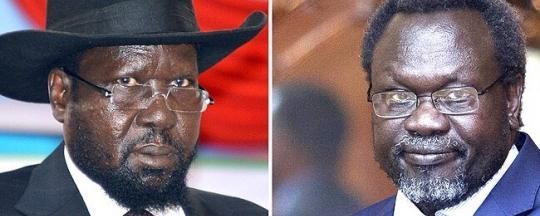South Sudanese warring parties at peace talks in neighbouring Ethiopia remain unable to reach consensus over contentious matters after a week of direct negotiations, raising the prospect of missing the deadline set by the regional mediation.
Deng Alor Kuol, former South Sudanese cabinet affairs minister and the lead representative of the former detainees, confirmed on Friday that “no progress” has been made to overcome differences on key matters after all representatives were allowed to continue with the negotiations on Thursday following days of direct negotiations through thematic committees on various matters.
“I confirm that no progress has been made on the contentious issues, even after resuming negotiations on Thursday evening. The disagreement has continued around demilitarization of the national capital, structure of the government at the top, especially on the duties of the president and the proposed first vice president, the power-sharing ratios and the system of governance,” said Deng on Friday.
If this round of peace talks fails, it would be another in a series of breakdowns and missed deadlines since negotiations began in January 2014 under the mediation of the Intergovernmental Authority on Development (IGAD).
Chronology of key events
January 23, 2014: Kiir and Machar signed a first ceasefire in Ethiopia brokered by East Africa’s eight-member IGAD bloc but it was broken shortly after.
May 9, 2014, Kiir and Machar prayed together, as mediators in Addis Ababa hail a deal “ending the war.”
August 25, 2014: Amid IGAD sanction warnings, Kiir and Machar inked another ceasefire in Addis Ababa, along with a deal to forge a unity government within 45 days.
October 20, 2014: In the Tanzanian town of Arusha, Kiir and Machar signed a reunification agreement of the divided ruling Sudan People’s Liberation Movement (SPLM), accepted “collective responsibility” for the war, and called again for peace.
November 8, 2014: An “unconditional, complete and immediate end to all hostilities” was agreed by the rivals in Addis Ababa. It was dishonoured a few hours after it was signed and before the leaders could return to their respective destinations from the venue of the talks in Addis Ababa, Ethiopia.
January 21, 2015, Kiir and Machar promised to make a “public apology” for the war and recommit to a ceasefire.
February 1 2015: Another ceasefire commitment was signed and a deadline of March 5 was set to agree a final peace deal and establish a transitional government.
June 27, 2015: Kiir and Machar met for five hours in Kenya, without signing a deal while assuring they would end the conflict through peaceful dialogue.
August 6, 2015: Talks resumed in Addis Ababa, ahead of an August 17 deadline. Fighting resumed three days after negotiators convened following a month of consultation on a compromise proposal.




